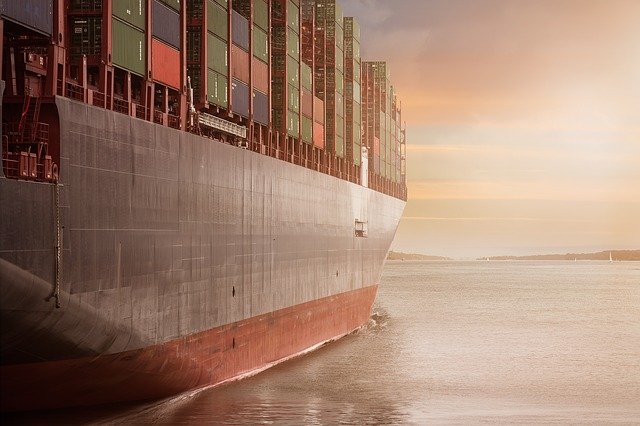
-
Bills seeking to establish a ship registry system in the Philippines have been filed again
-
House Bill No. 4336 and Senate Bill No. 902 provide a legal framework for the rules on ship registry and enforcement of maritime claims and limitations of liability
-
They also provide incentives for vessels on the Philippine registry
-
The Maritime Industry Authority will be the implementing agency of the measure
-
The bills propose an annual tonnage tax at a rate of US$0.10 per net registered tonnage, and exemption from import duties and taxes, value-added tax and other taxes on vessel and spare parts importation
Bills seeking to establish a ship registry system in the Philippines have been refiled in Congress.
House Bill (HB) No. 4336, authored by Ilocos Norte 2nd district representative Angelo Barba, and Senate Bill (SB) No. 902, filed by Senator Juan Edgardo Angara, aim to establish the scope and procedures for a Philippine ship registry.
The bills will provide a legal framework for the rules on ship registry and enforcement of maritime claims and limitations of liability, as well as provide incentives to all vessels on the Philippine registry.
Similar bills were filed in the Lower House during previous Congresses. Those filed in the 17th Congress reached approval on third and final reading, while those in the 18th Congress got stuck at the committee level.
In his explanatory note, Angara said the Philippines has only 113 vessels catering to international trade registered under the Philippine flag. This, even as the country is a major supplier of maritime professionals aboard international vessels.
“Other countries have attracted many foreign-owned vessels to register under their flag states by reason of their simplified system of registration and the appealing incentives they offer,” Angara noted.
At present, “there is a lack of a particular law completely addressing the registry system in the Philippines, which has been a perennial source of confusion and disorder,” he said.
“Clearly, there is a necessity to formulate policies and rules that adhere to the global standards and maritime conventions, particularly on ship registry,” he added.
He said once the registry system is in place, ample protection will be extended equally to ship owners carrying the Philippine flag and all other parties who have a legitimate claim against them.
“At the outset, this will benefit all our present domestic shipowners who are already registered under the Philippine registry,” Angara said.
In his explanatory note, Barba said HB 4336 intends to develop the maritime industry through compliance with international maritime conventions’ regulations and practices. This will then help achieve the country’s aim of becoming one of the leading and respected flag states, he added.
In both bills, the Maritime Industry Authority (MARINA) was named implementing agency that will form the secretariat to support implementation of the proposed measure.
MARINA will maintain the ship registry, which will consist of the Register of Ships and Record of Ship Mortgages and Encumbrances. There will be one registry for all ships flying the Philippine flag.
Any ship registered under the Philippine registry will be entitled to the following:
- Conferment of the nationality and status of a Philippine ship;
- Protection of the Philippine flag;
- The right to invoke the diplomatic, consular and naval protection of Philippine authorities and protection of the flag of the Philippines;
- Imposition of the duty to fly the Philippine flag;
- Obligation to abide by all applicable laws, decrees, orders, rules and regulations of the Philippines;
- The privilege to engage, consistently with the limitations provided by law, in Philippine coastwise trade in accordance with corollary permits, certificates and franchises that may be issued to the vessel;
- The right to invoke the exercise of jurisdiction and control by Philippine government authorities over all persons found on board the vessel, or over any incident involving the penal or disciplinary responsibility of the master or any member of the crew, whether the same arises from a crime or quasi-delict committed on board the vessel or from any collision or other incident of navigation concerning the ship.
An annual tonnage tax will be imposed and to be paid by the owner, manager or bareboat charterer of the vessel for the issuance and continued possession of a valid and subsisting certificate of Philippine registration.
The annual tonnage tax will be computed at a rate of US$0.10 per net registered tonnage or its equivalent in Philippine peso based on the present or latest exchange rate posted by the Bangko Sentral ng Pilipinas on the date of payment of the tonnage tax.
As an additional incentive, if the owner, manager, or agent has satisfactorily complied with certain conditions in the proposed measure, the tonnage tax due may be reduced to $0.08 per net registered tonnage or its equivalent in Philippine peso. If MARINA finds, however, that the condition for the additional incentive is violated or proof shown for its existence is fabricated, the Certificate of Philippine Registration may be revoked.
Under the proposed measures, importation of a vessel, the spare parts, steel/metal plates and equipment needed for refurbishing, repairing and maintaining such vessel will be exempt from payment of import duties and taxes, value-added taxes and all other pertinent taxes.
In the case of the registered vessel, the annual tonnage tax will be in lieu of any income tax due from the shipowner, manager, agent or bareboat charterer and the withholding tax due on the lease or bareboat charter fees earned by the shipowner.
Likewise, all crewing personnel of the registered foreign-owned vessel will be exempt from income tax and all other taxes that may be imposed on their salaries and remunerations received by reason of or in connection with their employment with the shipowner, manager or bareboat charterer of the registered foreign-owned vessel.
HB 4336 has been referred to the Committee on Transportation while SB 902 has been referred to the Committee on Public Services. – Roumina Pablo
RELATED READ: House approves creation of a PH ship registry




